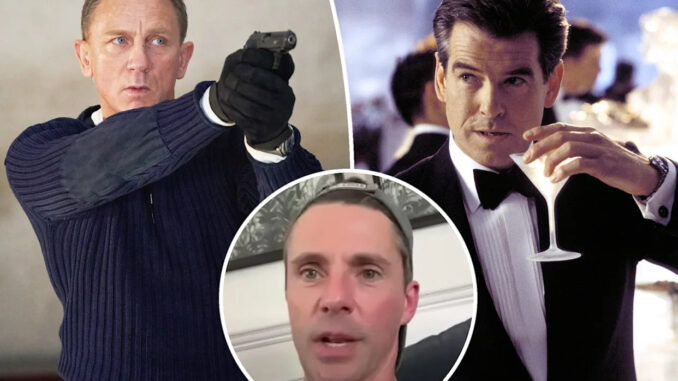
The whispered anecdote from the casting rooms of Casino Royale often serves as a fascinating footnote in Bond lore: Matthew Goode's radically dark pitch for 007, a vision so stark, so utterly devoid of the character's traditional allure, that it reportedly saw him dropped from contention. It was a Bond, he suggested, who was not merely a spy with a license to kill, but a man actively self-destructing, swimming in an ocean of addiction and simmering hatred. To fully grasp the audacity – and indeed, the terrifying allure – of such a concept, we must step into the shadows of that unmade Bond, where the glamour is gone, and the rot has set in.
Imagine James Bond, not with the suave composure of a man in control, but with the subtle tremor of withdrawal. The crisp clink of ice in a martini glass would be replaced by the hollow rattle of pills in a cheap plastic bottle, or the gurgle of cheap whisky poured straight from the neck. His hands, once steady enough to disarm a bomb or aim a Walther PPK, would tremor, betraying the craving that gnawed at his core. The pristine suits would be rumpled, perhaps stained, the air around him carrying the stale scent of desperation and forgotten nights. Alcohol would no longer be a social lubricant or a sophisticated tipple; it would be a numbing agent, a chemical blanket against the ceaseless anxieties of his brutal existence, consumed alone in dimly lit hotel rooms, chased by the paranoia of the coming dawn.
Then, layer upon this the gnawing hunger of drug addiction. Bond, the ultimate pragmatist, would find himself enslaved by the very chemicals he might once have scoffed at. Cocaine for the razor-sharp focus that no longer came naturally, leaving him strung out and twitchy. Heroin, perhaps, for the brutal oblivion it offered, a fleeting escape from the faces of those he’d killed, the betrayals he’d endured, the ever-present shadow of death. His eyes, once quick and intelligent, would be either dilated and manic, or sunken and dull, betraying the internal war raging beneath the surface. The meticulous planning would be replaced by impulsive, erratic decisions, fueled by a desperate need for the next fix, compromising missions, risking lives – perhaps even his own, less out of bravery and more out of a terrifying indifference.
But the most chilling aspect of Goode’s alleged pitch was the core transformation of Bond's relationship with women. The legendary charm, once a tool of seduction and manipulation, would curdle into a repellent cynicism. Women wouldn't be conquests or even pawns; they'd be objects of suspicion, sources of inevitable betrayal, or simply inconvenient obstacles to be brushed aside with a sneer of open contempt. The casual misogyny of old would transform into a toxic, festering hatred, stripped of any veneer of wit or sophistication. He wouldn't seduce; he might use, he might exploit, but the act would be transactional, devoid of any pleasure or connection, leaving both parties hollow. A woman’s touch wouldn’t be welcomed, but perhaps flinched from, or met with a cold, analytical gaze, searching for a weakness to exploit. Love, even fleeting passion, would be an anathema, replaced by a deep-seated revulsion for vulnerability, projected onto every woman he encountered.
This Bond would not stride confidently into a casino; he would slink in, his eyes darting, his paranoia a constant companion. The wit would be replaced by barbed insults, the cool under pressure by uncontrolled bursts of rage or icy indifference. He would not save the world out of any noble conviction, but perhaps out of a twisted sense of duty, or simply because it was the only life he knew, a path of self-destruction masked as purpose. He would be a man utterly alone, not by choice, but by the very nature of his unraveling.
Matthew Goode’s vision, then, was less a reboot and more an exorcism. It stripped away every comforting layer of fantasy that had accrued around James Bond for decades, revealing the raw, ugly nerve of what such a life truly costs. It presented a hero who was not merely flawed, but fundamentally broken, his vices consuming him from the inside out, his soul curdled by the sheer weight of his existence. It was a Bond too real, too bleak, too uncomfortably close to the tragic reality of men pushed beyond their limits. And that, ultimately, is why the pitch remained a pitch, a tantalizing glimpse into a shattered mirror. The audience, it seems, might crave a darker Bond, but perhaps not one utterly consumed by the very darkness he is meant to fight. For in that version, there is no escape, no redemption, and no fantasy – only the long, slow, agonizing fall.
